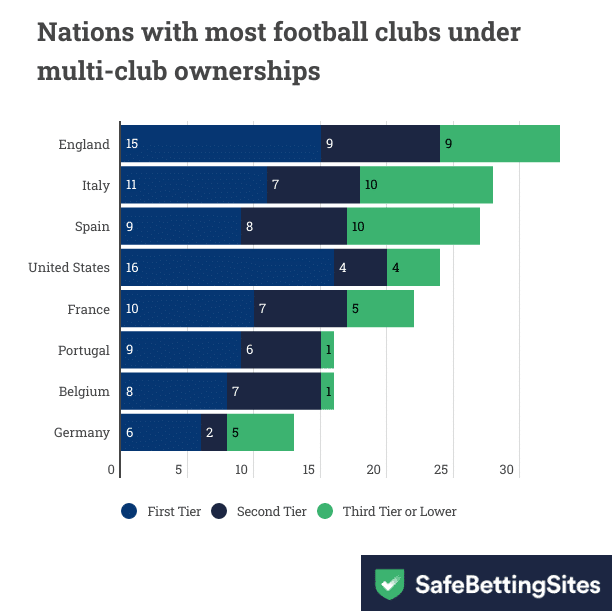The recent surge in multi-club ownerships in football has become a contentious issue. According to the numbers presented by SafeBettingSites.com, England currently has most football clubs, 33 to be exact, across the pyramid which are part of multi-club investments. Italy is not far behind with 28 clubs.
15 Premier League clubs part of multi-club investments

Multi-club ownerships in football have come under a lot of scrutiny recently. However, this is a trend which is only getting popular in modern football. Multi-club ownership or investment means a single owner (person or a group) having minority or majority stakes in multiple football clubs. These clubs are usually located in multiple countries.
However, when it comes to the origin of such clubs, England is currently the most popular destination for investment. According to the latest UEFA report, there are 33 clubs in England with owners having investments in multiple clubs. 15 of these 33 clubs play in the top tier of English football, which is Premier League, nine in the second tier, and further nine in the third tier or lower.
Italy is next with 28 clubs of which 11 play in Serie A. Seven currently play in the second tier of Italian football, and ten in the third tier or lower. Spain is next with 27 clubs with nine in the top tier, eight in the second tier, and ten in the third or lower.
The United States is next on the list with 24 clubs. Thus, the US has become the most preferred destination outside Europe for football investment. 16 clubs in the top tier of US football, i.e MLS, are part of multi-club ownership.
France is the next nation on the list with 22 clubs on the list. Ten of these 22 clubs play in Ligue 1, and the rest in the lower leagues. Portugal and Belgium are next on the list with 16 nations each. These two nations have also become an attractive proposition for investment because of their rich supply of young footballing talent.
Germany is the next nation with just 13 clubs of which six play in the Bundesliga. Germany has comparatively fewer clubs on the list than other traditional football powerhouses because of its ownership rules which complicates private investment in clubs.







